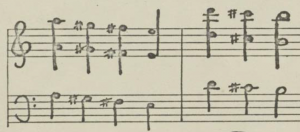Copyright Music

When you copyright music, two different types of works can be protected. Copyright protects both the musical composition (the song) and the sound recording which embodies the musical composition. Many artist agreements provide that the producer or record label will retain rights to the sound recording, but some artists can negotiate for the right to re-record their songs.
So you think you can make music. You have talent, charisma, passion and good looks. Making money from making music can be amazing. However, making money in the music business is not easy.
Making a living while making music is tough. You have to work hard, practice hard. In addition, you have to have a job which pays you while not interfering with making music. Often times, you’ve had to face adversity on many fronts. A lot of luck doesn’t hurt.
You may spend years playing music for little or no money. You’ve spent most nights playing music late into the night. Many artist hold onto a hope of eventually “making it.” After years of hard, exhausting work, most artists don’t make it.
Music Artist Agreements
Some of the few artists that get the opportunity to “make it” are taken advantage. In some cases their accountants, managers and labels all take advantage, in other cases, its other musicians. Sometimes “making it” means you go even further into financial hardship. The first agreement is rarely in favor of the artist. Many famous bands endure years of financial hardship before breaking-free from their agreement.
What can a musician do? Well if you’re lucky, and successful, you might just have an ace up your sleeve.
Copyright Music comes to the rescue. If you are a successful artist, with years of successful music sales, depending on your agreement you might be able to simply re-record your music and sell it again. That’s what Taylor Swift recently did.
Copyright Law
In the copyright music world, copyright law provides at least two copyright elements for every song. One copyright relates to the musical composition, the second is the sound recording.
Musical Compositions
The musical composition consists of music including words and is normally registered as a work of performing art. The musical composition is the actual song the artist created. The combination and arrangement of musical notes and lyrics which form the song are protected. We refer to the combination as a musical work and it is protected as a musical composition. The author of a musical composition is generally the composer and the lyricist. The tangible form which is protected is the recorded form of a CD, tape, cassette or even the sheet music.
Sound Recordings
The second copyright to be aware of is the master recording which is normally registered as a sound recording. This is the tangible recording which includes a mixture of musical, spoken or other sounds. The sound recording is used to create the album, a single or other albums. The author of the sound recording is the performer whose performance was recorded. This can also include the record producer who processed the sounds or both. The music copyright for the master recording protects the recording and is separate from the musical composition.
Not every deal is created equal and most new artist deals are bad deals. The agreement can have long term implications on your copyrights and ability to make money. Many deals are so bad, artist continue to lose money afterwards. If you are interested in a record deal, it is important to understand the long-term and immediate implications.
Contact us
If this is an area of interest, you can contact a copyright attorney to review your artist agreement and discuss what rights you are giving up and what you are retaining. We can discuss you owns the rights to your musical performances, copyright music rights, musical compositions and sound recordings and help you determine if its the right deal for you.
.
